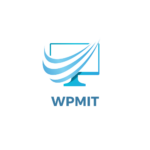In today’s digital age, web development skills are in high demand. Aspiring developers often find themselves overwhelmed by the sheer number of bootcamps available. With promises of quick learning and job placement, choosing the right program can feel like a daunting task.
The best web development bootcamps offer immersive experiences that equip students with the practical skills needed to thrive in the tech industry. They blend hands-on projects with expert instruction, ensuring learners gain both theoretical knowledge and real-world experience. This article explores the top bootcamps that stand out for their curriculum, support, and success rates, helping future developers make informed decisions about their education.
Best Web Development Bootcamp
Web development bootcamps offer intensive training programs designed to quickly equip individuals with the necessary skills for a career in web development. These bootcamps typically span a few weeks to several months, focusing on both frontend and backend development. Participants engage in projects that enhance their coding abilities, foster collaboration, and build portfolios.
Many bootcamps emphasize a hands-on approach, allowing students to practice coding through real-world scenarios. Each program often includes guidance from experienced instructors, who provide insights into industry standards and best practices.
Bootcamps also support students with career services. This support can range from resume building to interview preparation, significantly improving job placement opportunities. Graduates often report high satisfaction rates, reflecting the effectiveness of the training in meeting current job market demands.
Overall, web development bootcamps serve as an efficient pathway for those entering the tech industry. By offering concentrated learning experiences, these programs help students transition quickly into web development roles.
Criteria for Choosing the Best Bootcamp
Selecting the right web development bootcamp requires evaluating several key factors. These criteria significantly influence the learning experience and long-term career success.
Curriculum Quality
Curriculum quality plays a critical role in the effectiveness of a bootcamp. Comprehensive programs cover essential topics such as HTML, CSS, JavaScript, and frameworks like React and Node.js. Up-to-date curriculums align with industry trends, ensuring that students acquire relevant skills for job readiness. Projects should mirror real-world applications, allowing participants to build a portfolio that showcases their capabilities. Bootcamps that incorporate feedback from hiring managers further enhance curriculum relevance and effectiveness.
Instructor Experience
Instructor experience directly impacts the learning environment. Knowledgeable instructors with industry experience provide invaluable insights into current practices and technologies. They demonstrate coding concepts effectively and guide students through hands-on projects. Instructors who maintain connections within the industry can offer networking opportunities, enhancing career prospects for graduates. Additionally, small class sizes foster direct interaction, allowing for personalized support and guidance.
Support Services
Support services play an essential role in bootcamp success. Robust career services increase job placement rates by offering resume reviews, interview preparation, and job search assistance. Networking events and industry partnerships create additional opportunities for students. Access to mentoring or tutoring further supports students as they navigate challenges during their training. Bootcamps that maintain strong alumni networks provide ongoing support and resources, contributing to long-term career growth.
Top Web Development Bootcamps
Selecting a web development bootcamp requires understanding the key features and advantages each program offers. Here are three top-rated bootcamps known for their robust curricula and strong support services.
Bootcamp 1: Overview and Features
General Assembly provides an immersive web development curriculum designed for beginners and experienced developers. The program covers essential skills, including HTML, CSS, and JavaScript, with a focus on practical experience. Features include:
- Full-Stack Curriculum: Covers frontend and backend technologies, including popular frameworks.
- Hands-On Projects: Students complete real-world projects, building a portfolio to showcase their skills.
- Expert Instructors: Industry professionals guide students, offering personal insights and mentorship.
- Career Support: Offers resume reviews and interview preparation to enhance job placement chances.
Bootcamp 2: Overview and Features
Hack Reactor focuses on software engineering with an emphasis on JavaScript and related technologies. The rigorous program has a selective admissions process to ensure candidate readiness. Key features include:
- Immersive Learning: Full-time and part-time options are available, allowing flexibility for different schedules.
- Project-Based Training: Completion of collaborative projects cultivates teamwork skills and portfolio development.
- Job Placement Rate: High employment rates within months of graduation highlight program effectiveness.
- Networking Opportunities: Alumni support and industry connections aid in job search success.
- Flexible Formats: Available both in-person and online, accommodating diverse learning preferences.
- Curriculum Depth: Covers full-stack development, including modern frameworks and deployment strategies.
- Mentorship Program: Students receive guidance from both instructors and industry experts throughout the course.
- Career Coaching: Dedicated career coaches assist students in finding job opportunities and preparing for interviews.
Cost and Financing Options
The cost of web development bootcamps varies significantly based on program length, format, and institution reputation. Most bootcamps range from $7,000 to $20,000 for a full program. Students should evaluate their budgets and consider all associated costs, including materials and potential lost income from time spent in training.
Many bootcamps offer financing options to ease the financial burden. Financing options may include:
- Payment Plans: Flexible monthly installments allow students to spread costs over several months or years.
- Income Share Agreements (ISAs): Students pay a percentage of their salary after securing a job, reducing upfront costs.
- Scholarships: Various bootcamps provide scholarships based on merit or financial need, lowering total tuition expenses.
- Federal Aid: Some bootcamps qualify for federal financial aid programs, enabling students to access loans or grants.
Prospective students should research all financing options thoroughly. Comparison of terms, repayment schedules, and additional fees will ensure informed decisions. Exploring these financial avenues can make pursuing a web development bootcamp more accessible and manageable for aspiring developers.
Aspiring Developer’s Career Trajectory
Choosing the right web development bootcamp can significantly impact an aspiring developer’s career trajectory. With the right blend of curriculum quality, experienced instructors, and robust support services, students can gain the skills needed to thrive in the tech industry.
As the demand for web development skills continues to rise, these bootcamps offer an efficient pathway for individuals looking to enter this dynamic field. By investing time and resources into a quality program, graduates are well-equipped to navigate the challenges of the job market and achieve long-term success in their careers.

